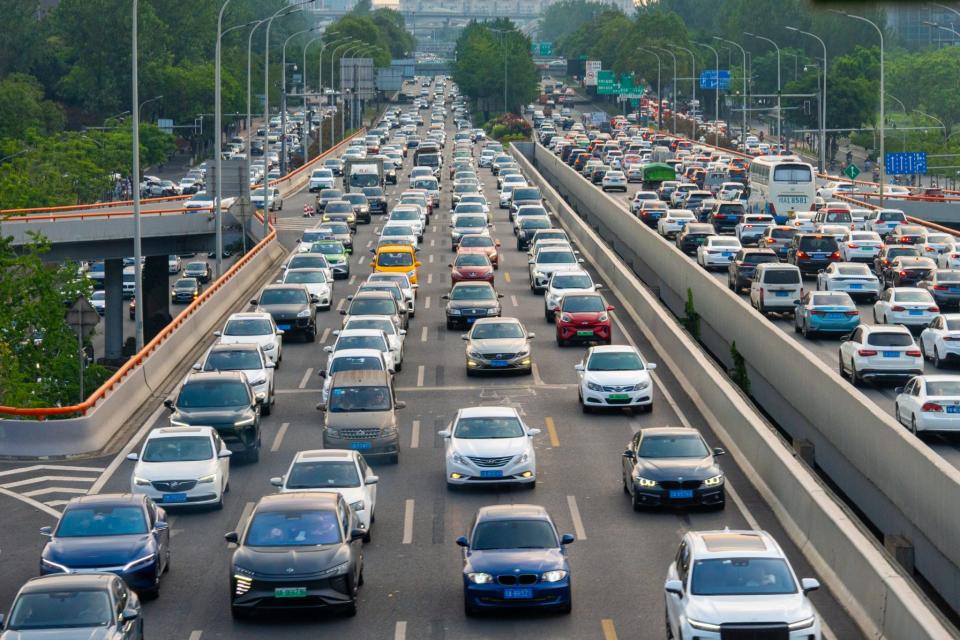Fourth of July traffic will be record-setting. Here’s how to avoid the traffic jams

Traveling for July 4? You’re hardly alone.
AAA estimates some 70.9 million people will be on the road in some form or fashion this year, traveling 50 miles or more from their home. That’s a 5% increase over last year and 8% higher than pre-pandemic levels in 2019.
And no transportation method will be more popular than the car. AAA says a record 60.6 million people will be clogging the highways and side streets. That’s 2.8 million more than a year ago. Hertz tells AAA that it expects to see the biggest demand for rentals in Dallas, Denver, Salt Lake City, Los Angeles, and San Francisco.
Lower gas prices and increased wanderlust are behind the increased number of people on the road.
So, how can you avoid being stuck in traffic jams for the majority of your holiday? It’s going to be challenging—and you might want to consider leaving either a bit earlier or a lot later if you want to avoid the worst of it.
AAA says the worst travel times on July 3 will be between 2:00 p.m. and 7:00 p.m. Your best bet is/was before noon. Those same windows will apply on July 4 as well.
If you’re making a long weekend of things, and planning to drive back Sunday, an early departure is a wise idea, ideally before 11:00 a.m. Things will be especially sticky between 2:00 p.m. and 8:00 p.m., AAA says.
“Drivers in large metro areas can expect the worst traffic delays on Wednesday, July 3, as they leave town, and Sunday, July 7, as they return,” said Bob Pishue, transportation analyst at INRI, a provider of transportation data and insights. “Road trips over the holiday week could take up to 67% longer than normal. Travelers should monitor 511 services, local news stations, and traffic apps for up-to-the-minute road conditions.”
In Chicago, that could be a 61% increase to the typical travel time to Indianapolis via I-65. Drivers headed from Tampa to Orlando on Wednesday can expect to spend an extra 58% longer in the car. And if you’re planning to drive from Baltimore to Washington, D.C., on Monday July 8, in the afternoon, it will take 67% longer than usual, as some vacationers extend the weekend even longer.
Best times to travel
Wednesday, July 3: before 12 p.m.
Thursday, July 4: before 12 p.m.
Friday, July 5: before 10 a.m.
Saturday, July 6: before 10 a.m.
Sunday, July 7: before 11 a.m.
Monday, July 8: after 7 p.m.
Worst times to travel
Wednesday, July 3: 2–7 p.m.
Thursday, July 4: 2–7 p.m.
Friday, July 5: 11 a.m.–4 p.m.
Saturday, July 6: 10:30 a.m.–2:30 p.m.
Sunday, July 7: 2–8 p.m.
Monday, July 8: 1–5 p.m.
This story was originally featured on Fortune.com

 Yahoo Finance
Yahoo Finance 